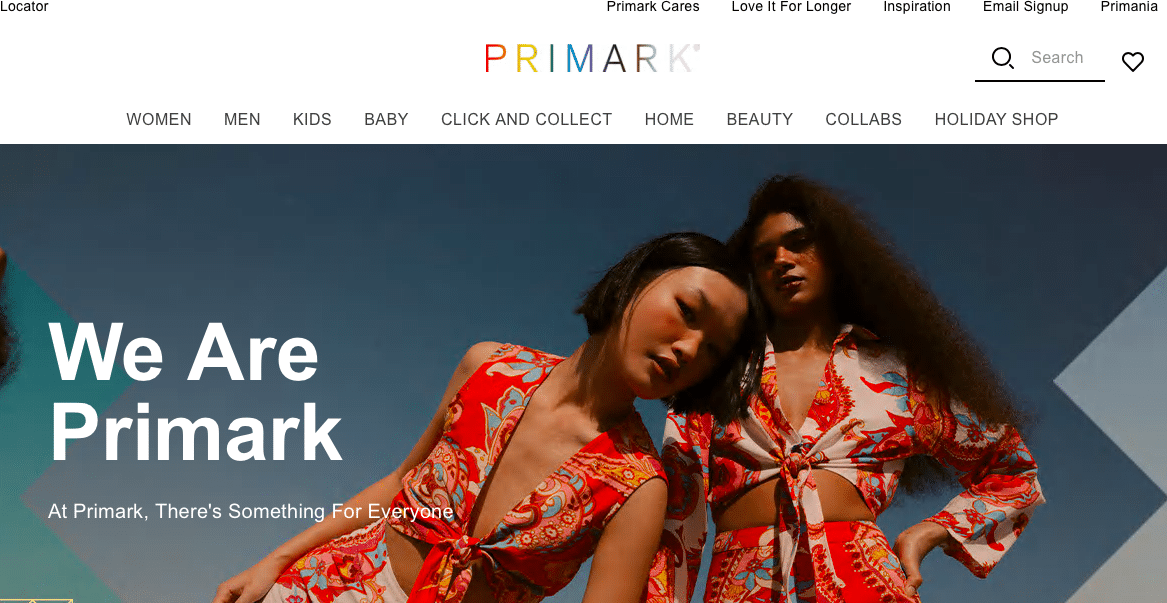
Value fashion retailer Primark posted robust results for its quarter 3 figures this week, with total sales rising 13% to just shy of £2bn for the 12 weeks to 27 May, as its value proposition stands strong in tougher market conditions.
Like-for-like sales grew 7%, which it said was down to “higher average selling prices.” And as shoppers return to physical shops, Primark said its flagship city-centre stores have “continued to be good.”
What is Primark’s annual revenue UK?
Primark’s total sales for 2022 reached around £7.7bn, after two years of falling revenue due to stores being shut during the pandemic. And 2023 is on track to deliver stronger growth.
Primark’s owner, FTSE 100 firm Associated British Foods, ABF, revealed a better-than-expected quarterly performance for Primark, which accounts for 42% of total revenues. Within its grocery division, the group also manufactures branded and private label grocery products such as Ryvita, Kingsmill and Twinings.
What makes Primark UK successful?
Globaldata’s apparel analyst Louise Deglise-Favre says: “Primark’s positive performance can be attributed to its low prices and fashionable product ranges, making it a retailer of choice for consumers on a budget. Primark also stated that sales of health & beauty products were “particularly strong”, highlighting that its value proposition appeals beyond clothing categories as consumers continue to feel the pinch of inflation,” she adds.
She said the retailer performed similarly in the UK and Europe, with like-for-like sales rising 6% and 7% respectively, due to its strong seasonal ranges resonating well with consumers in preparation for summer. Primark’s ranges have catered to all major fashion trends expected this summer, and its upcoming collaboration with Mattel for the release of the Barbie movie is expected to be a success given the social media buzz surrounding the signature pink aesthetic of the film.
What about global markets, such as the US?
Deglise-Favre says: “While Primark failed to mention its performance in the US, the trend from H1 is likely to have continued, with growth driven almost entirely by store expansion rather than demand, with the retailer opening a store in New York state in Q3. The US is a highly competitive market, where online fast fashion retailer Shein has established itself as an additional competitor to well-established retailers like Target and Walmart, making it more difficult for new players to gain market share.
“Primark has rolled out its improved website format in Italy, Spain, the US, and France, allowing consumers to browse a wider variety of products and have a live view of stock levels by store. The websites remain non-transactional, and although this is outdated, it does not seem to be hindering Primark’s performance as consumers have flocked back to stores, eager to engage in the in store shopping experience,” she adds.
Who is Primark’s biggest competition?
Primark was one of the original value fashion retailers, but supermarket fashion in the UK has upped its game in recent years, with the likes of Sainbury’s, Tesco and Asda offering great styles at affordable prices. And in the fast fashion space, online global giants such as Chinese ultra-fast fashion player Shein and fast fashion app Temu, which use AI algorithms to predict trends and churn out clothing at incredibly low prices, are clipping at the heals of ASOS, H&M and Primark.
Want more insights on finance, current events, business, industry and more? Sign up for the Matt Haycox newsletter for fresh updates every week.




